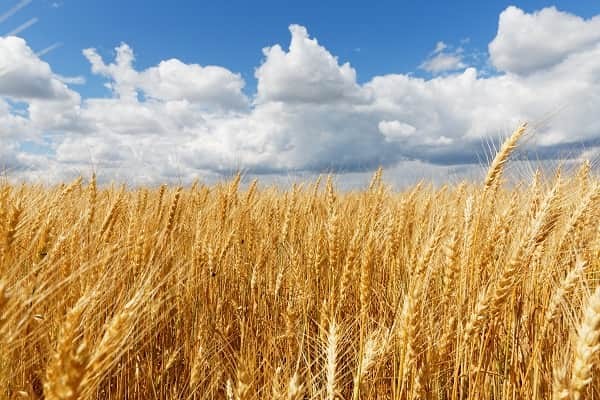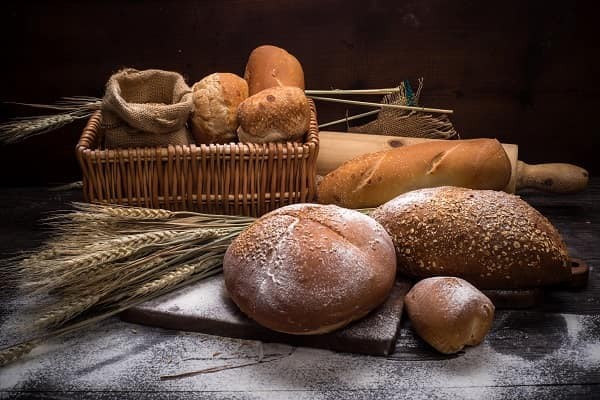What’s So Bad About Gluten?


What exactly is Gluten?
We’ve all at one stage considered reducing our gluten intake for one reason or another. But will doing so make you healthier, or will it make you feel better? It’s alluring to think so.
Diet fads have come and gone for decades. However, the rise in attention and enthusiasm surrounding the “gluten-free” movement in past years has been incredible. In the early 2000s, most people didn’t even know what gluten was, perhaps they still don’t.
I refer back to a memorable episode of the illustrious TV series Keeping Up with The Kardashians.
Scott Disick: “I don’t even think she knows what gluten is. I don’t, do you?”
Kylie Jenner: “No”
Scott Disick: “Does anybody?”
Great question Scott. Gluten is a protein found in most grains, with common foods including bread, pasta, pizza and cereal. Gluten provides no essential nutrients and can cause an undesirable immune response in people with Celiac Disease resulting in systemic inflammation and mild injury to the digestive tract. It’s also common for people in support of the anti-gluten movement to blame many of society’s current health issues (including obesity) on the consumption of gluten or grains.
Author Dr David Perlmutter has even gone so far as to label gluten as “today’s tobacco”. Lastly, it is proclaimed that gluten has undesirable effects on gut and gut health.

So, should we ditch grains and bread?
Not so fast.
While 63% of Americans believe that a gluten-free diet would improve their health, estimates suggest that only 1% of the population has Celiac Disease and warrant elimination of gluten. However, approximately 5-6% of the population also have some sensitivity to gluten.
These individuals test negative for Celiac Disease, but still show symptoms of bloating, diarrhea or abdominal pain when consuming gluten-containing foods. So, avoiding gluten certainly makes sense for those with Celiac’s, gluten sensitivities or wheat allergies.
But why is it that 5-6% of the population have legitimate reasons for eliminating gluten from the diet yet over 30% of Americans report avoiding gluten for health reasons.
We know there’s reasonable logic behind the practice e.g. if gluten is unhealthy for others, maybe it’s unhealthy for me.
We know anecdotes are powerful e.g. hearing about someone feeling better after removing gluten is a powerful influencer.
We know that gluten-free diets are endorsed by celebrities, some of whom we admire e.g. Beyonce’s and JLo’s recent public diets spring to mind.
What does the actual science say about consuming gluten for those of us without insensitivities?

What does the research say about gluten?
In one review paper analysing 26 different studies on grain consumption, eating grains didn’t result in any poorer body composition outcomes compared to those avoiding grains.
In another review paper, the authors concluded that consuming gluten actually had positive impacts on blood sugar, blood pressure, cholesterol and inflammation.
In a third study, gluten consumers were switched to a gluten-free diet for 1 month. Levels of “good bacteria” in the gut actually decreased significantly, which is completely counter to what many anti-gluten proponents suggest.
In a recent consumer reports survey, while respondents thought that gluten-free diets were more nutritious with more minerals and vitamins than conventional foods, the opposite was true. Gluten-free foods are often less fortified with folic acid, iron and other nutrients than gluten-containing foods.
Gluten-free foods tend to also be more energetically dense, with higher sugar and fat content. This is evidenced by some observational studies showing a trend toward weight gain in those who follow a gluten-free diet. Lastly, gluten-free options tend to be far more expensive than conventional foods.
So, if you thought the gluten-free mantra had no downsides then think again.

The bottom line
There is little reason for someone who tolerates gluten to avoid it. Moreover, there are marked downsides to avoiding gluten-containing foods which can have a negative impact on your health and your wallet.
And just in case you favour the line of anecdotal evidence in place of scientific trials, the Italian population are the highest consumers of bread, pasta and pizza but have one of the highest life expectancies on the planet.
If you’re still not convinced, ask yourself what you and all your schoolmates were eating as teenagers. Likely a wheat-based cereal for breakfast (because Nutri-Grain makes champions), and a sandwich for lunch. I don’t remember everyone complaining about abdominal pain, bloating and leaky gut back then…
If you like grains and feel good eating them, dig in. Don’t let some athlete, celebrity or book author convince you otherwise.

Jackson Peos has completed a PhD at the University of Western Australia, and has a straightforward approach to nutrition and supplements.
He's completed his BSc in Sports Science, and Exercise & Health, and his BSc (Hons) in Exercise Physiology.
More about Jackson PeosReferences:
- Pol K, Christensen R, Bartels EM, Raben A, Tetens I, Kristensen M. Whole grain and body weight changes in apparently healthy adults: a systematic review and meta-analysis of randomized controlled studies. Am J Clin Nutr. 2013 Oct;98(4):872-84. doi: 10.3945/ajcn.113.064659. Epub 2013 Aug 14. PMID: 23945718.
- Schlesinger S, Neuenschwander M, Schwedhelm C, Hoffmann G, Bechthold A, Boeing H, Schwingshackl L. Food Groups and Risk of Overweight, Obesity, and Weight Gain: A Systematic Review and Dose-Response Meta-Analysis of Prospective Studies. Adv Nutr. 2019 Mar 1;10(2):205-218. doi: 10.1093/advances/nmy092. PMID: 30801613; PMCID: PMC6416048.
- Xu Y, Wan Q, Feng J, Du L, Li K, Zhou Y. Whole grain diet reduces systemic inflammation: A meta-analysis of 9 randomized trials. Medicine (Baltimore). 2018 Oct;97(43):e12995. doi: 10.1097/MD.0000000000012995. PMID: 30412134; PMCID: PMC6221555.




























